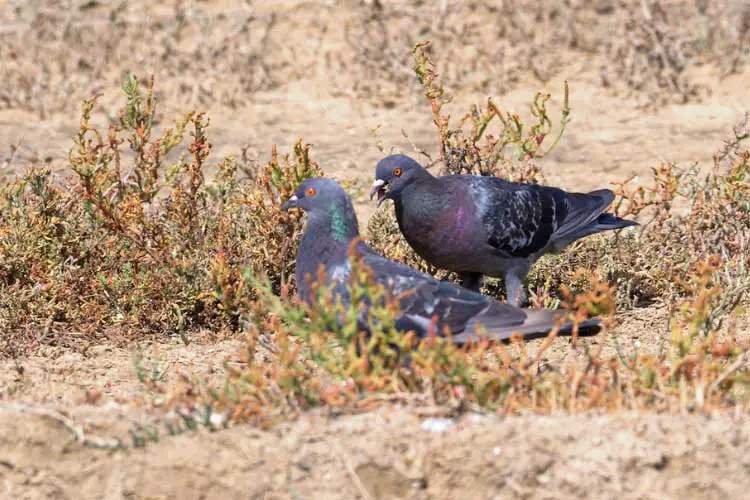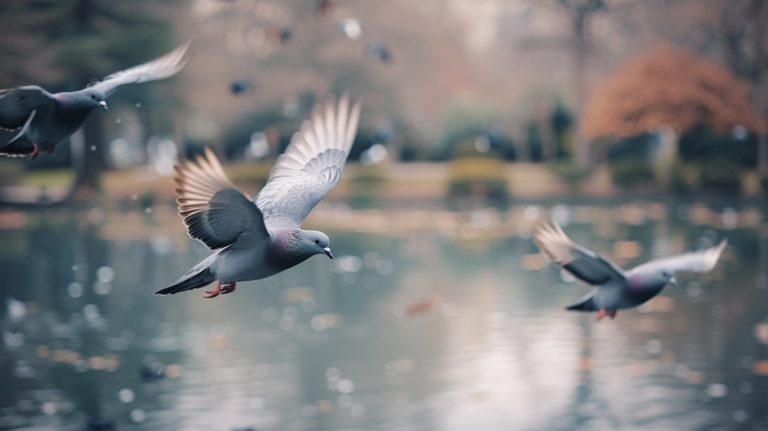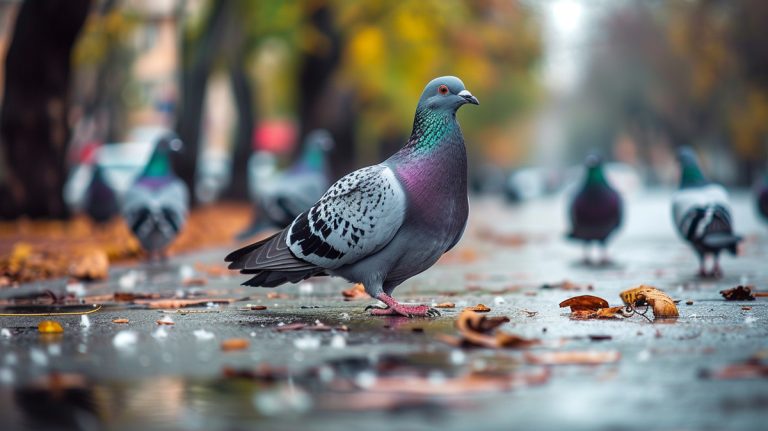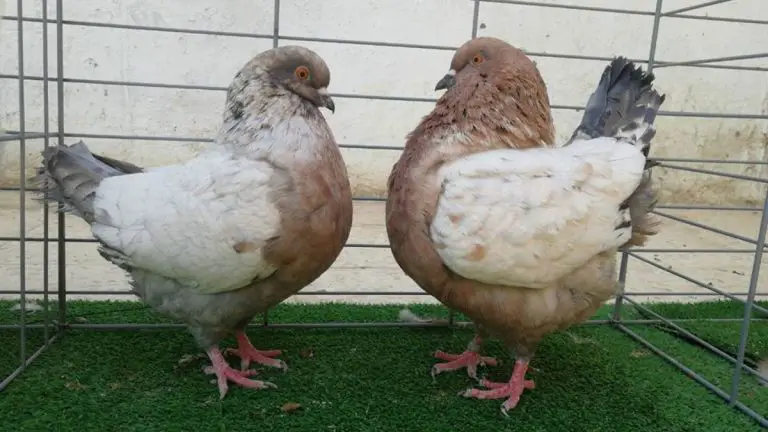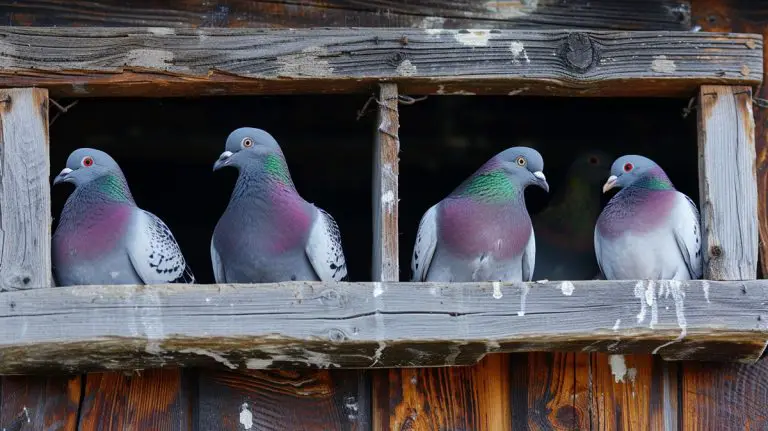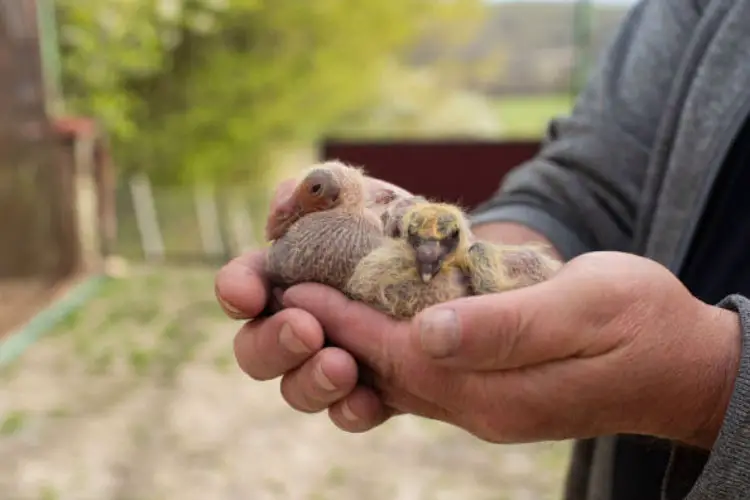Do Pigeons Eat Worms? Is This A Good Dietary Option?
The dietary needs of pigeons consist of a different variety of food options ranging from grains, vegetables, fruits, and animal proteins. However, they do not feed on every animal protein, there is an exception for several of them.
Hence “do pigeons eat worms?” Yes, pigeons feed on worms, and this is one of their major dietary needs both in the wild and urban areas. Worms are a proteinous animal diet for pigeons and provide significant health benefits. Although not all worms are healthy or suitable for their consumption.
In this piece, we will show you the potential health benefits and every piece of information on the consumption of worms by pigeons.
Can You Feed Worms To Pigeons?
Of course, you can feed worms because worms are a nutritious and natural dietary option for feeding pigeons. Though, seeds and grains are more like a staple for pigeon diets.
But including rich proteinous foods like worms can provide a number of benefits. Also, by offering worms to supplement a balanced diet, pigeons can thrive and live healthily.
Furthermore, worms can be found easily in different spots, for example, in parks, gardens, and stagnant waters. Also, the production of worms doesn’t require much but minimal resources when compared to traditional livestock.
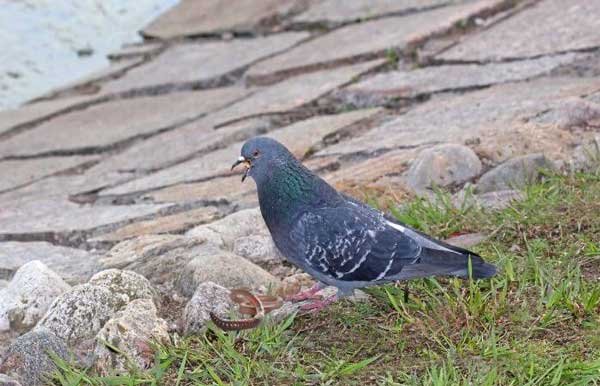
It is environmentally friendly if you’re concerned about responsibly feeding your pigeons.
Safe And Unsafe Worms To Feed Pigeons
Not all worms are healthy for your pigeon’s consumption. Hence let’s consider some worms that are safe to feed to pigeons and some worms that should not be fed.
| Safe To Feed | Not Safe To Feed |
| Mealworms | Cutworms |
| Wax worms | Nightcrawlers |
| Phoenix worms | Wireworms |
| Black soldier fly larvae | Grub Worms |
| Earthworms | Root-knot nematodes |
| Red worms | Worms from contaminated or unknown sources |
| White worms |
Generally, it is very safe to feed earthworms, mealworms, wax worms, red worms, phoenix worms and black soldier fly larvae to your pigeons. Because these worms are a very rich proteinous animal diet and can provide a nourishing supplement to a pigeon’s diet.
Also, cutworms, nightcrawlers, wireworms, and grubworms may contain some toxins or harmful parasites that are detrimental to a pigeon’s health. Therefore, it’s best to avoid feeding your pigeons with these worms. In addition, don’t feed them worms from potentially contaminated sources.
How Can You Offer Worms To Pigeons?
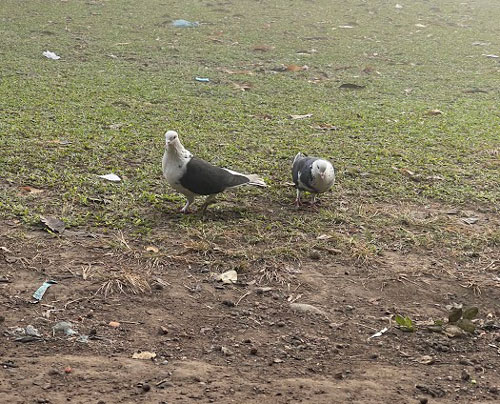
One option is to simply place a small bowl of worms in an area where the pigeons frequent.
You can also try putting the worms on a flat surface, such as a bird feeder or a plate. This method is to make the worms easier for the pigeons to access. Just be sure to check and refill the worms as needed regularly.
Do Pigeons Like Worms?
Pigeons enjoy snacking on worms as a natural food source and part of their diet in both urban and wild areas. It’s a preferable food for them to consume.
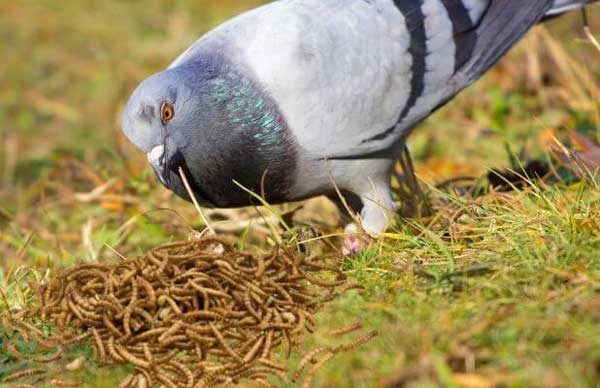
Health Benefits For Pigeons Eating Worms
Worms may be small, but they pack a powerful punch regarding the health benefits they can provide for pigeons. Let’s look at some health benefits of consuming worms by pigeons.
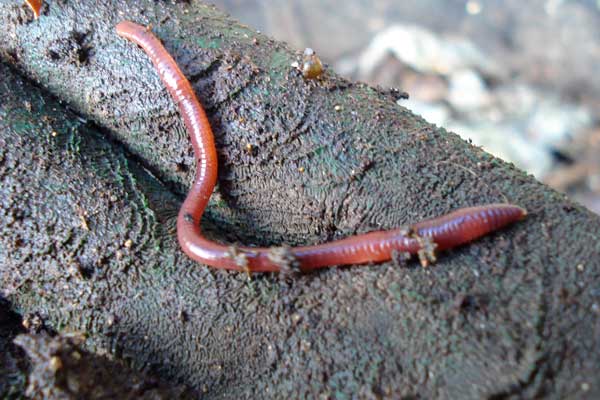
High Source Of Protein
One of the most notable benefits of worms for pigeons is the fact that they are a great source of protein. Protein is essential for the growth and repair of tissues, and it is also necessary for the production of enzymes and hormones.
Also, it helps to build other important molecules in the body. By eating worms, pigeons can ensure that they are getting all of the protein they need to stay healthy and strong.
Source Of Mineral And Vitamins
In addition to protein, worms also contain a variety of other nutrients that are important for pigeon health. These include essential amino acids, vitamins, and minerals.
For example, worms are a rich source of iron, which is necessary for the production of red blood cells and the proper functioning of the immune system.
Aids The Digestive System
These small creatures can also help to support healthy digestion in these birds. Worms contain fiber, which helps to keep the digestive system moving smoothly and can prevent constipation.
How Much Worms Should Pigeons Eat?
An adult pigeon should eat about 4 to 6 large worms per day, as this is not the only food source for them. Make sure to provide them with a balanced diet of grains, vegetables, seeds, and commercial pellets. However, feeding more on worms will unlikely harm them.
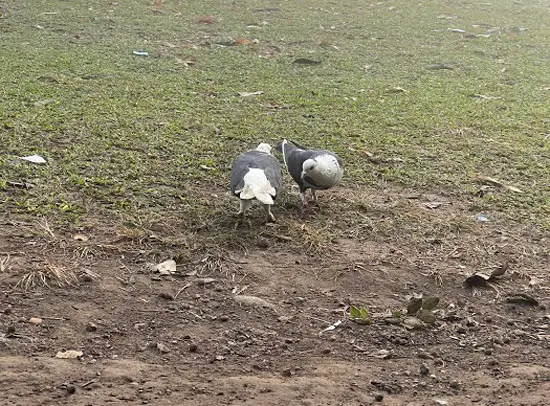
How Do You Prepare Worms For Pigeons?
Worms can be a nutritious and tasty treat for pigeons. But it’s important to prepare them properly to ensure they get all the nutrients they need. Here’re some simple steps for preparing worms for your pigeons:
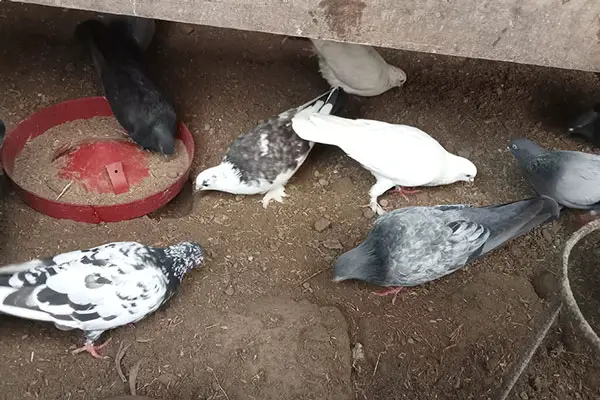
Step 1: Collect Or Purchase Worms
If you’re gathering wild worms, make sure to collect them from an area that has not been treated with pesticides or other harmful chemicals. You can also purchase worms from a pet store or online.
Step 2: Rinse The Worms
Rinse the worms thoroughly under cool water to remove any dirt or debris.
Step 3: Chop The Worms
If the worms are large, chop them into small pieces to make them easier for your pigeons to eat.
Step 4: Serve The Worms
You can serve the worms on their own as a treat or mix them into your pigeon’s regular feed. Be sure to provide plenty of fresh water for your pigeon to drink.
Can You Feed Worms To Baby Pigeons? If So, How?
Yes, baby pigeons can eat worms as a treat, but they should not be the main source of nutrition. Baby pigeons have very specific nutritional needs and require a diet high in protein.
They also need other essential nutrients to support their growth and development. A diet consisting mainly of worms is unlikely to provide all the nutrients baby pigeons need.
How To Feed Baby Pigeons Worms?
First, let’s consider how many worms feed a baby pigeon during the first four weeks of life.
| Pigeon Age | Quantity Of Worms Per Serving |
| 1 week old | 5-6 worms |
| 2 weeks old | 6-7 worms |
| 3 weeks old | 7-8 worms |
| 4 weeks old | 8-10 worms |
The size, activity level, and breed of pigeon may increase or decrease the number of worms it needs.
By the way, ensure thoroughly follow the preparation steps given in the previous section to give your baby pigeons a healthy diet.
The following video gives clear virtual information about how to feed a baby pigeon
Example Video:
Frequently Asked Questions
Some frequently asked questions answers about feeding worms to your pigeon may help you to clear the confusion.
Earthworms are part of the groups of worms that pigeons snack on. So they eat earthworms.
Pigeons prefer their worms fresh and so may not consume dried worms. Mealworms and earthworms are their favorites.
Conclusion
Remember that worms can be a nutritious and sustainable option for feeding pigeons. By offering them as a supplement to a balanced diet, you can help these urban birds thrive and live happy, healthy lives
Also, be wary of feeding your baby pigeon only worms as they need other food sources to have a balanced diet. Ensure to deworm your pigeon at the required time to prevent diseases associated with parasitic infection.
